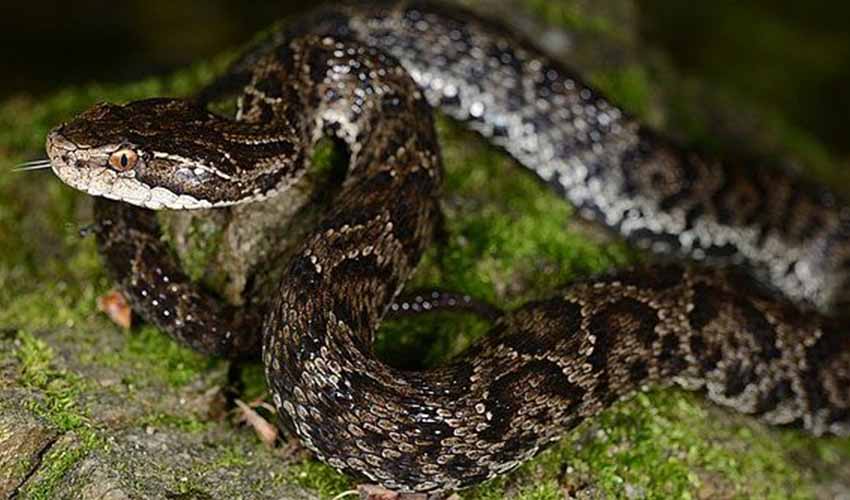A little-known but remarkable snake found only on Tsushima Island, a forested island between Japan and Korea. Closely related to the well-known Mamushi (Gloydius blomhoffii), this pit viper is considered endemic, meaning it lives nowhere else in the world. Its restricted range makes it a very special part of Tsushima’s biodiversity and an important species for conservation. Though it shares many traits with its mainland relatives, its isolation on the island has given it a unique identity.
In terms of appearance, the Tsushima Island Pitviper is a small to medium-sized viper. Its body is stout, with earthy brown or gray tones patterned with dark crossbands—excellent camouflage for blending into forest floors, rocky slopes, and leaf litter. Like other pit vipers, it has a triangular head and the characteristic heat-sensing pits between the eyes and nostrils, which it uses to detect warm-blooded prey. These adaptations allow it to be an efficient nocturnal hunter, preying on small mammals, birds, frogs, and lizards.
What makes the Tsushima Island Pitviper distinct is its island ecology. Being confined to Tsushima, it has had to adapt to limited prey and habitat compared to its mainland relatives. While the Mamushi is widespread across Japan and East Asia, G. tsushimaensis exists in a much smaller population, which makes it more vulnerable to habitat changes and human impact. Despite its venom, it is not naturally aggressive; like most vipers, it prefers to remain still and hidden, relying on its camouflage until disturbed. Still, its bite can be dangerous if mishandled, so caution is always necessary.
Distribution
 Japan
JapanAnything we've missed?
Help us improve this page by suggesting edits. Glory never dies!
Suggest an editGet to know me
Terrestrial / Aquatic
Altricial / Precocial
Polygamous / Monogamous
Dimorphic (size) / Monomorphic
Active: Diurnal / Nocturnal
Social behavior: Solitary / Pack / Herd
Diet: Carnivore / Herbivore / Omnivore / Piscivorous / Insectivore
Migratory: Yes / No
Domesticated: Yes / No
Dangerous: Yes / No




